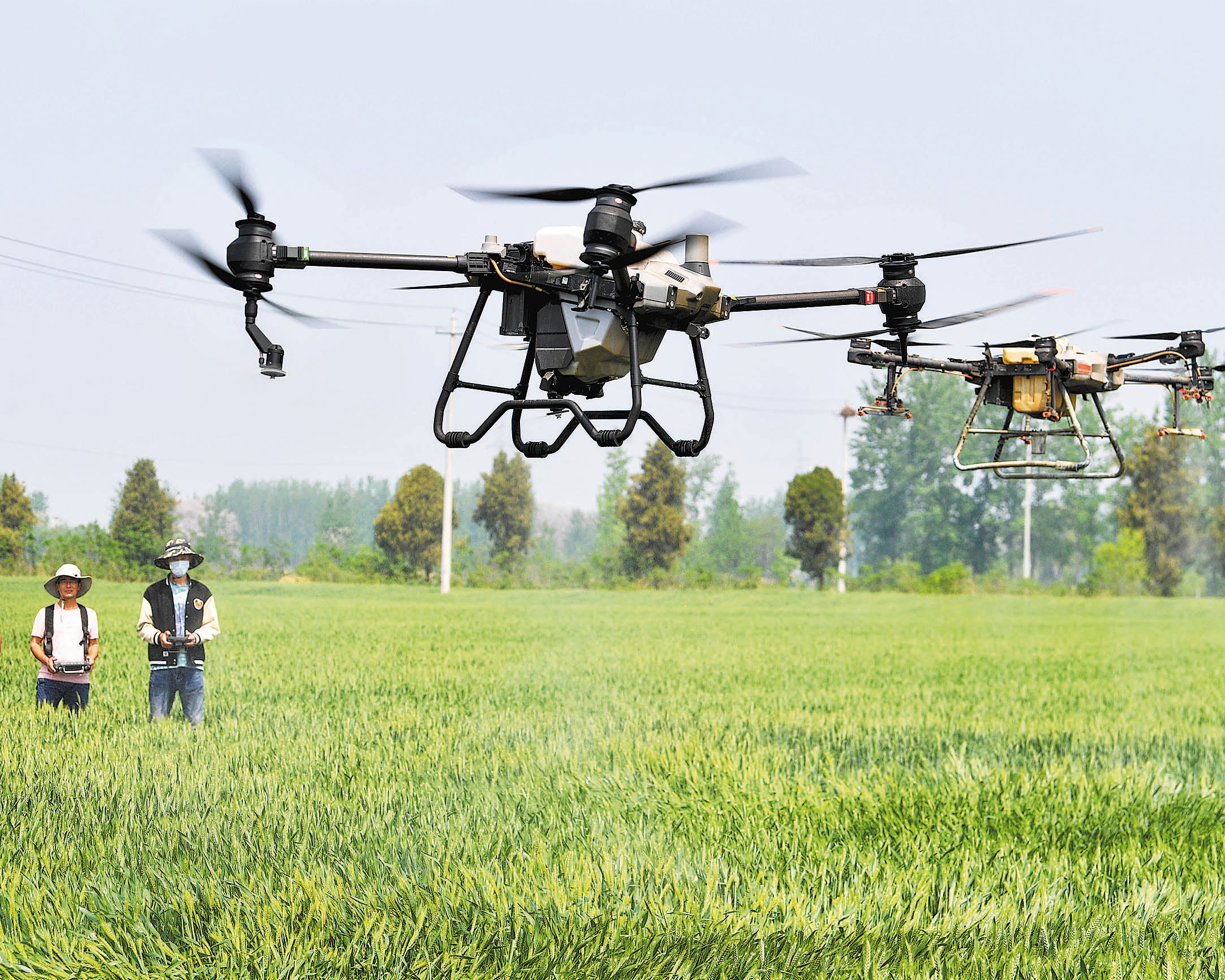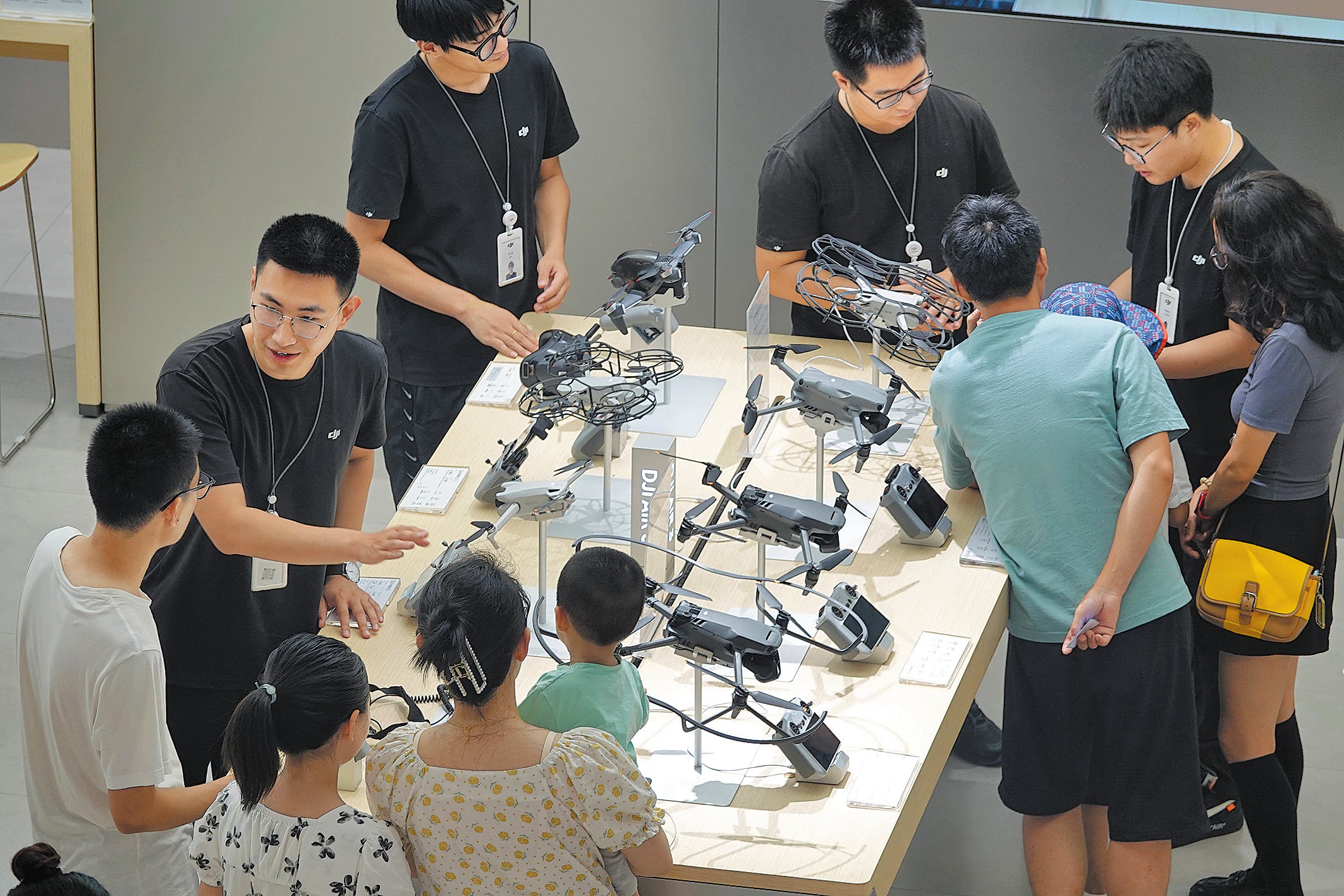Drone firms fly higher with versatile models
THE ARTICLES ON THESE PAGES ARE PRODUCED BY CHINA DAILY, WHICH TAKES SOLE RESPONSIBILITY FOR THE CONTENTS

Stakes are high and Chinese manufacturers of unmanned aerial vehicles, commonly known as drones, are seeking to fly higher with their latest models that are multipurpose and smarter, promising to grab as much share as possible of what is estimated to be a double-digit multibillion-dollar market globally already and set to grow further rapidly.
With drones finding applications in a wide range of fields – farming, cargo transport, aerial photography, surveillance and security operations, power-line patrolling, emergency rescue work, surveys and cartography, to name a few – the future for this market is going to be exciting, experts said.
A report from market tracker Mordor Intelligence said revenue of the global delivery drones market is expected to grow from $1.97 billion (£1.59 billion) in 2023 to $11.66 billion (£9.4 billion) by 2028, at a compound annual growth rate of 42.65 per cent.
Data from the Shenzhen-based Qianzhan Intelligence Co Ltd said the industry-level drone segment has witnessed explosive growth in China, with sales revenue projected to increase from 27.3 billion yuan (£3.04 billion) in 2020 to 265.8 billion yuan (£29.6 billion) in 2026.
Industry-specific drones, market experts said, are expected to see their value surge as they could help address labour shortages, besides enhancing all walks of life.
In August, the drone manufacturer DJI unveiled the FlyCart 30, its first cargo drone, thus foraying into the burgeoning delivery and logistics sector.
The FlyCart 30, which may be available only in the China market initially and whose price is 125,000 yuan (£13,900), has a four-axis, eight-propeller multi-rotor configuration that allows a maximum range of 10 miles on a maximum payload of 66lb in dual battery mode, the company said.
It can be used to move cargo to mountainous regions, ports and rural areas, with flight altitude reaching 19,700 feet, which means it can serve a range of needs.
“We are bullish on the prospects for aerial transport and hope to effectively solve the challenges arising from complex terrain and last-mile transportation for the industry,” said Zhang Xiaonan, strategic director of DJI.
Delivery drones have become increasingly widespread in recent years, helping increase the reach of e-commerce companies.

Chinese e-commerce company JD said it has used innovative drone technology to reach consumers in some of China’s hard-to-reach remote areas. The drones are developed by JD-X, JD’s research and logistics innovation lab, which is focused on developing smart logistics solutions to make the passage of goods from warehouses to Chinese consumers quicker, cheaper and more efficient.
Courier and logistics company SF Holding said it has rolled out several types of drones for delivery services, with a maximum payload of 55lb and flying distance of 62 miles.
The industrial drone market has huge growth potential, said Yang Jincai, director of the Shenzhen Unmanned Aerial Vehicle Industry Association in Guangdong province. “However, we still need time to see the large-scale application of drones in various sectors.”
DJI has been devoting a great deal of attention to farm-specific drones in the hope of helping farmers improve the efficiency of sowing seeds and spraying fertilisers and pesticides, as well as increasing the use ratio of intelligent agricultural equipment.
Its agricultural-use business began in November 2015 when it launched its first farm drone, the MG-1, marking its diversification into the segment. The company is bullish about the prospects for farm drones as demand for such gadgets has surged and the whole industry is expanding rapidly.
XAG Co Ltd, China’s largest agricultural drone maker, is ramping up efforts to develop farm-specific drones, step up investment in research and development, and expand its footprint in global markets as part of its broader drive to build a smart farming ecosystem.
Justin Gong, co-founder of XAG, said agricultural drones have been widely used for spraying pesticides, sprinkling fertilisers and sowing seeds to help farmers improve efficiency and reduce costs.

Bookmark popover
Removed from bookmarks